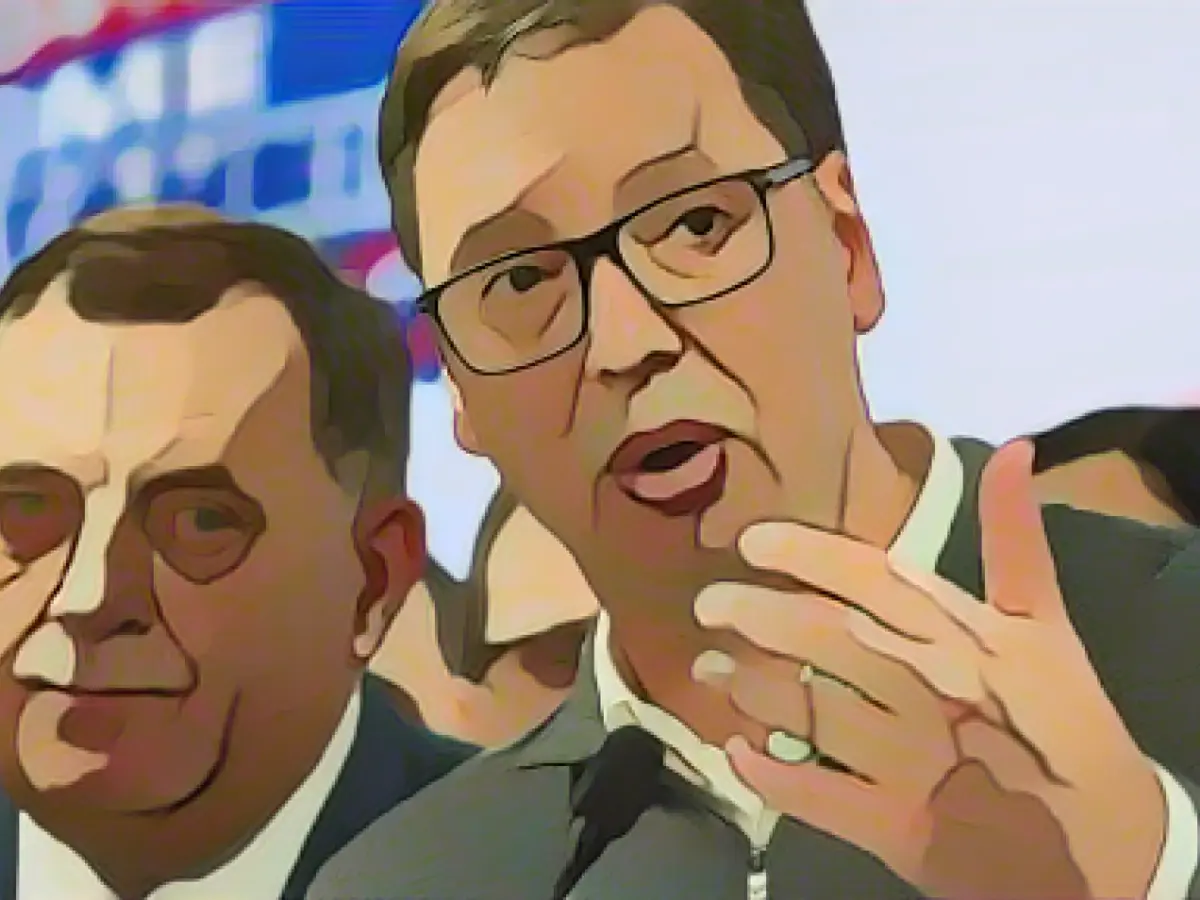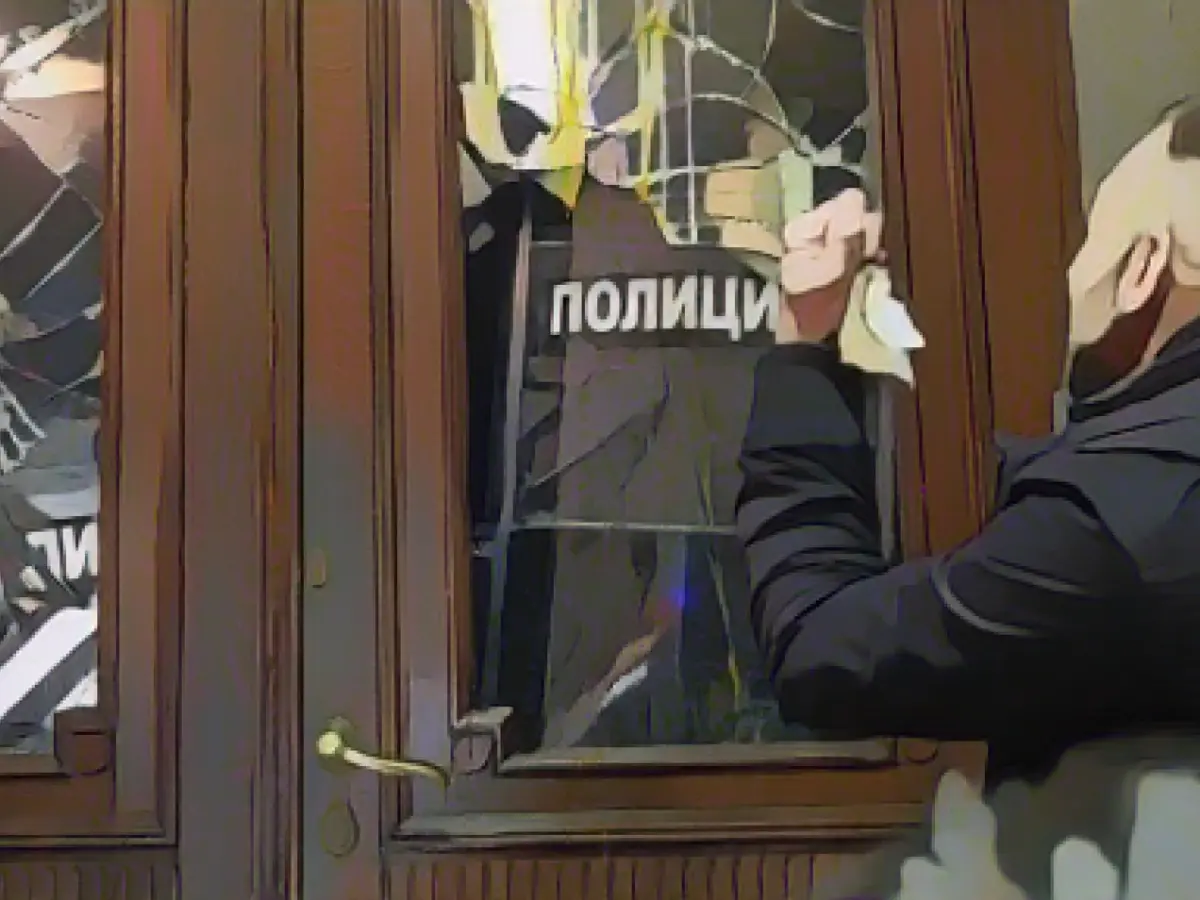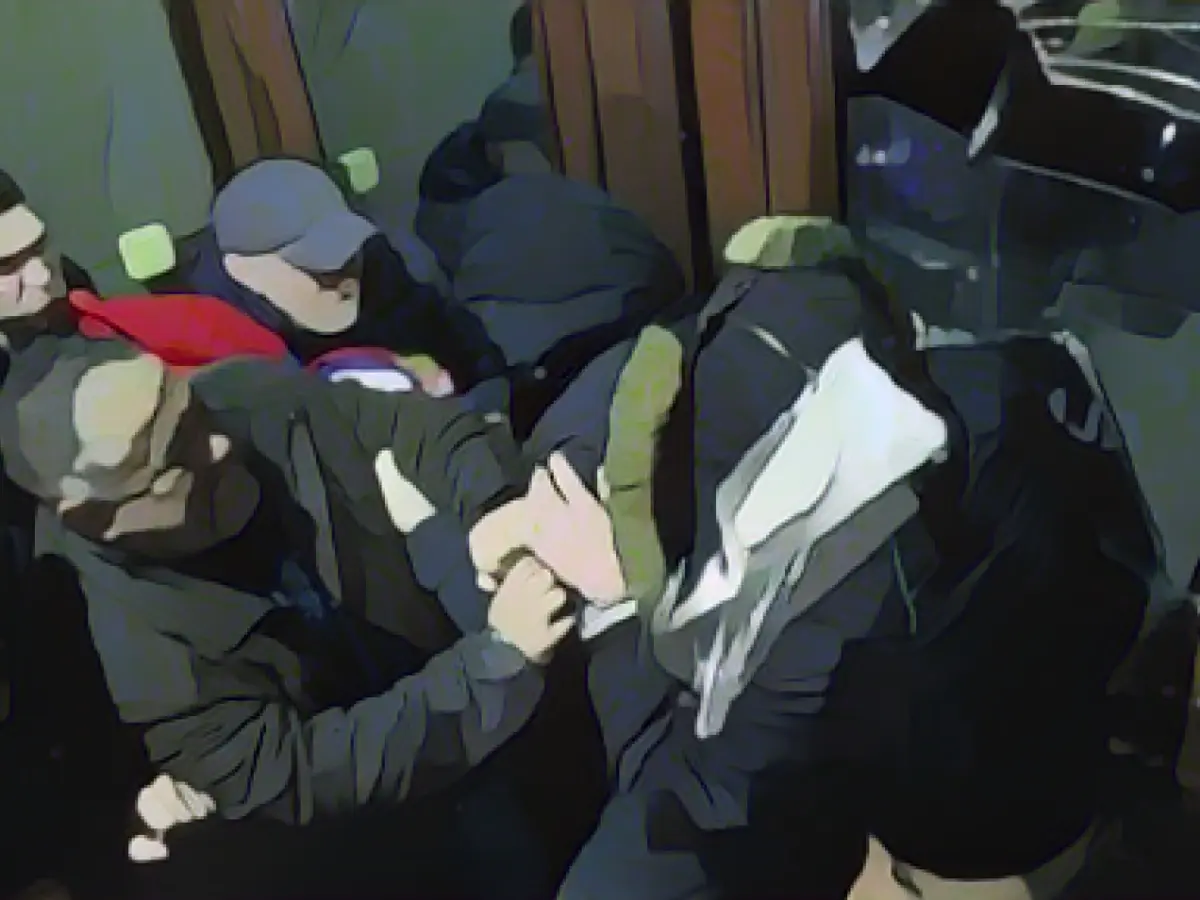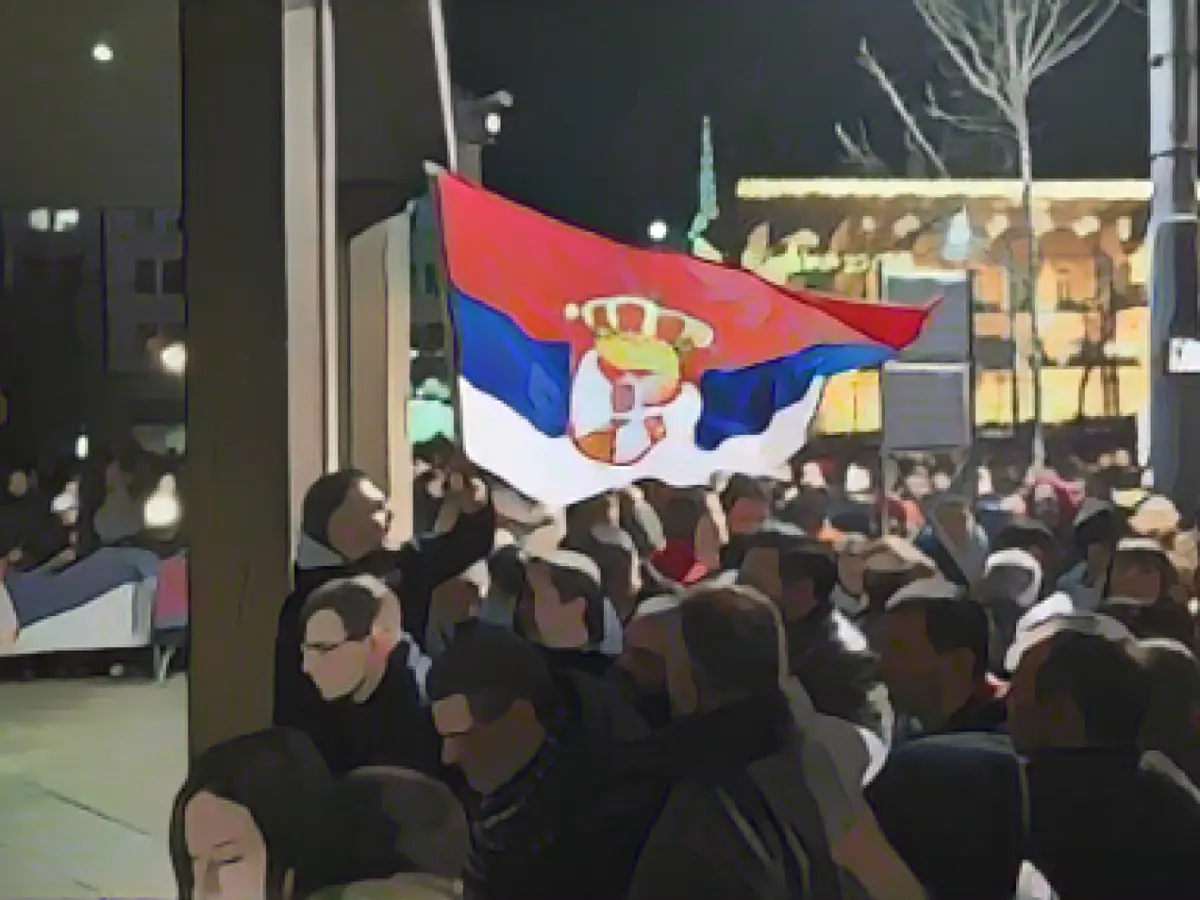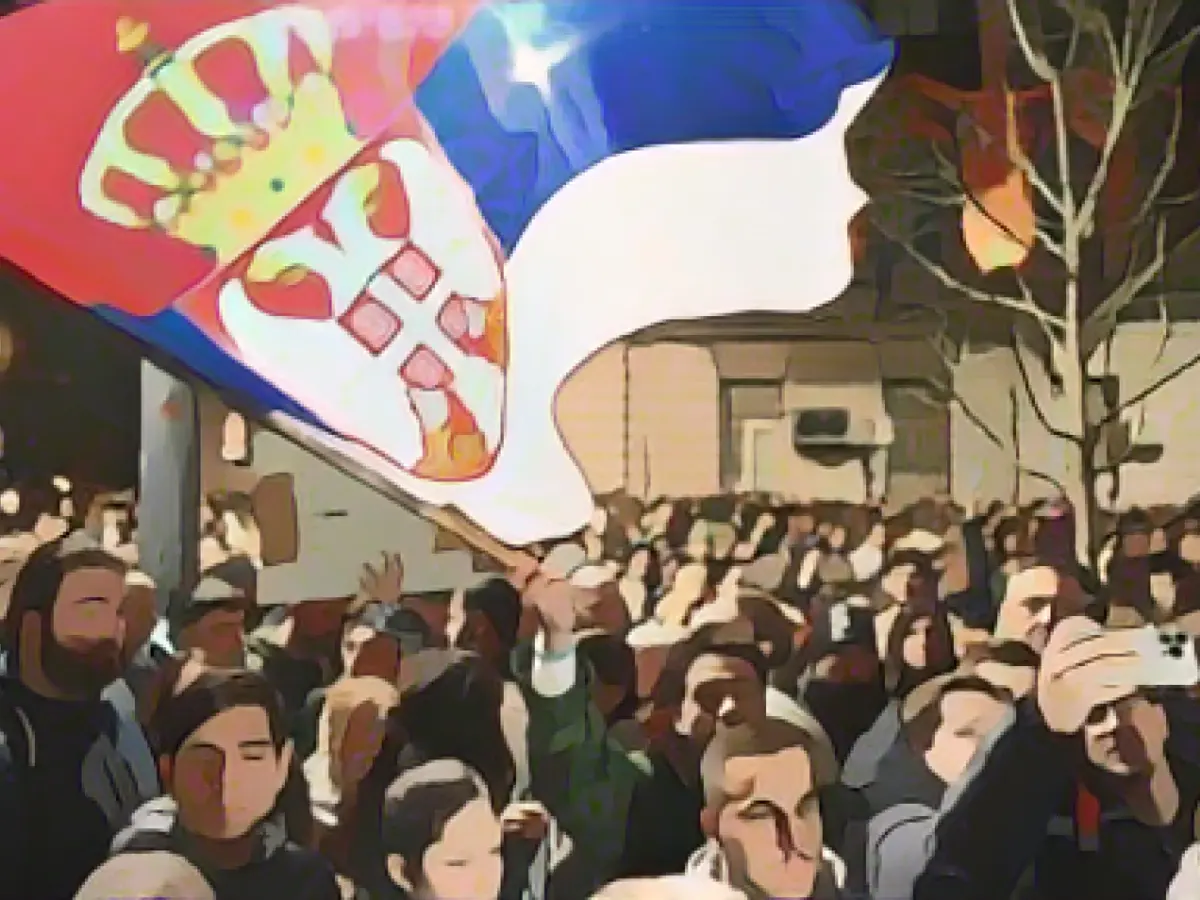Serbia's Parliamentary Elections: Vucic's Victory Soured by Fraud Allegations
The early parliamentary elections in Serbia have handed the predicted victory to the ruling Serbian Progressive Party (SNS). Led by President Aleksandar Vucic, the party secured an impressive 47% of the vote in the elections held on Sunday. With 95% of polling stations counted, the SNS is projected to win between 127 and 128 seats in the 250-seat parliament, clinching an absolute majority.
However, the election results were met with suspicion and fervent protests from the liberal opposition alliance "Serbia Against Violence," which trailed behind with 23% of the vote and 64-65 seats. The alliance alleged over 450 election regulation violations across the country, but especially in Belgrade.
On election night, opposition leader Miroslav Aleksic claimed that as many as 40,000 fake identity cards had been issued in Belgrade to non-resident voters, orchestrated with the assistance of state agencies. Eyewitness reports suggested buses had transported Serbian citizens from Bosnia-Herzegovina to Belgrade Arena, where they were alleged to have participated in the voting process.
The opposition alleged that these irregularities negatively impacted the outcome of the local elections that were underway simultaneously in Belgrade City Assembly, preventing either the SNS or the opposition from attaining the necessary majority to elect a new mayor. The opposition accused Vucic's party of widespread electoral fraud, prompting protests and demonstrations in front of Belgrade City Hall.
Formally, President Vucic holds only ceremonial powers during his term. Despite this, Vucic commands considerable influence over Serbia's political landscape as he has assumed multiple crucial positions since 2012. Critics denounced him for his authoritarian governing style and misuse of government apparatus, police, and secret services. The tabloid media controlled by the government stirred up hatred and aggression toward political rivals and critics.
The EU has been in discussions with Serbia regarding their potential accession since 2014. Negotiations have been progressing at a slow pace due to the lack of an incentive to implement real reforms from the Serbian government. Vucic's administration manages a delicate balance between maintaining relationships with the West, Russia, and China. Following the Russian attack on Ukraine, Serbia was the only European Union accession country that refused to impose sanctions on Russia, relying on the support of countries like Russia and Hungary, which has faced a freeze on its EU aid due to corruption and rule of law concerns.
- Despite the opposition's claims of electoral irregularities during the 2022 Serbian parliamentary elections, especially in Belgrade, the Serbian Progressive Party (SNS), led by President Aleksandar Vucic, secured a projected absolute majority in the Serbian parliament.
- The opposition parties alleged around 450 election regulation violations in the Serbian parliamentary elections, which took place just seventeen months following the last polls.
- Miroslav Aleksic, the opposition leader, maintained that 40,000 fake identity cards had been issued in Belgrade for non-resident voters to participate in the parliamentary elections, claimed to have been aided by state agencies.
- The liberal opposition alliance "Serbia Against Violence" finished in second place in the parliamentary elections with 23% of the vote and 64-65 seats, but the election results have led to a stalemate in the Belgrade City Assembly, which elects the mayor.
- The opposition has called for an international investigation into the election by the European Union due to alleged widespread fraud and demanded annulment of the election results at all levels.
- Thousands of Serbian citizens attended protests and demonstrations following the elections, with some attempting to enter the assembly building, and others throwing alleged fraudulent ballots at the government offices.
- Critics accuse Vucic of maintaining an authoritarian governing style, abusing government apparatus, police, and secret services to ruin political rivals economically and defame them in public.
Enrichment Data:
Opposition allegations of electoral fraud during the 2022 Serbian parliamentary elections in Belgrade were supported by various pieces of evidence and testimonies:
- Buses transporting voters from Bosnia-Herzegovina to Belgrade were reported, allegedly funded by the Serbian government.
- Independent observers, such as Viola von Cramon, a member of the European Parliament's observation mission, reported cases of voter intimidation and organized transport.
- Vote-buying and falsifying ballots and signatures were claimed during the elections, leading to investigations by Serbia's Prosecutor's Office.
- Opposition parties called for an international independent investigation by the European Union into the alleged widespread fraud during the parliamentary elections.
- Thousands of Belgradians protested and demonstrated against the alleged fraud, with some attempting to enter the assembly building and throw fraudulent ballots at the government offices.
The opposition's allegations of electoral fraud in the 2022 Serbian parliamentary elections remain a contentious issue in the country's political landscape and have raised concerns about the integrity of future elections in the region.
